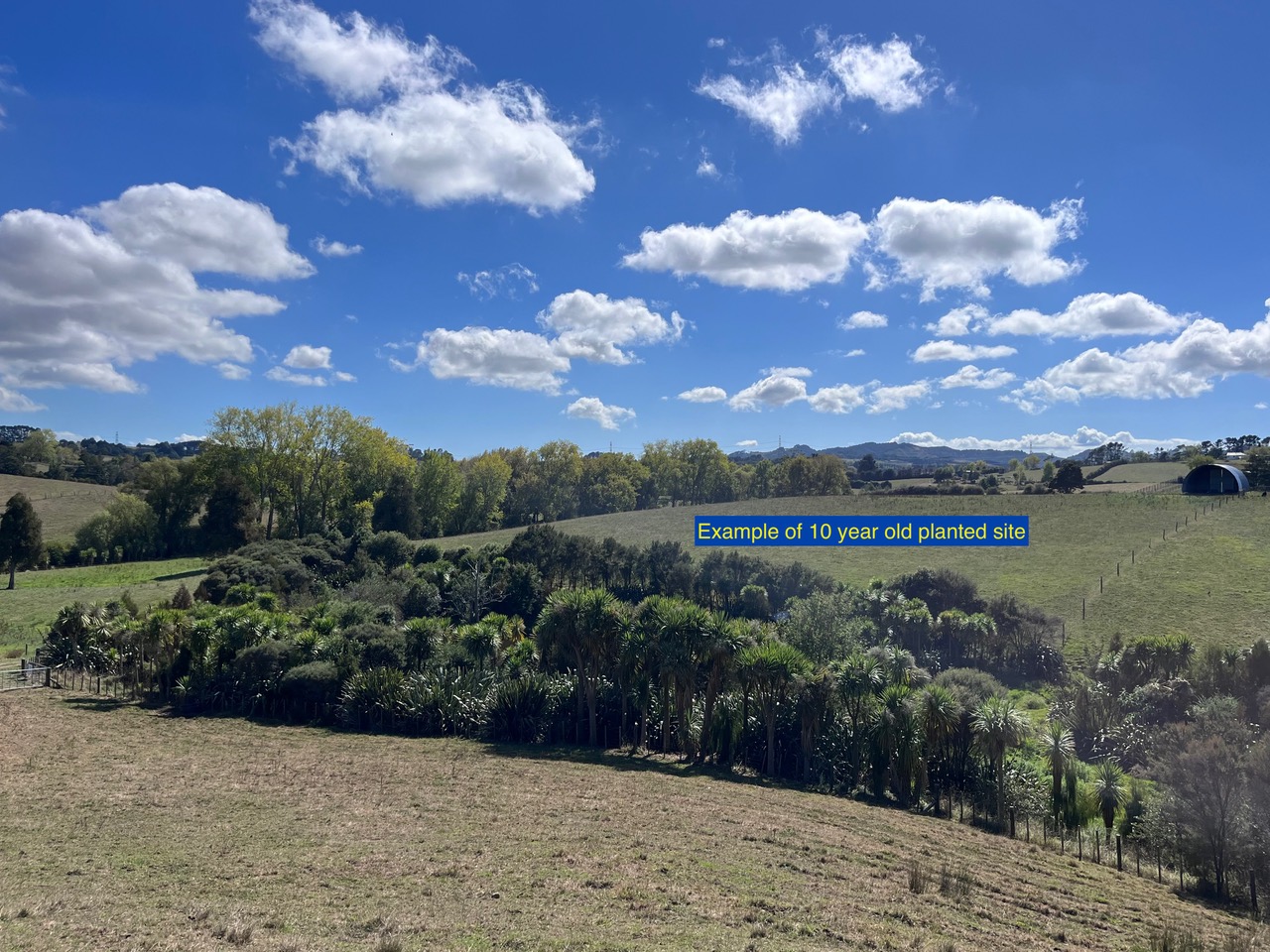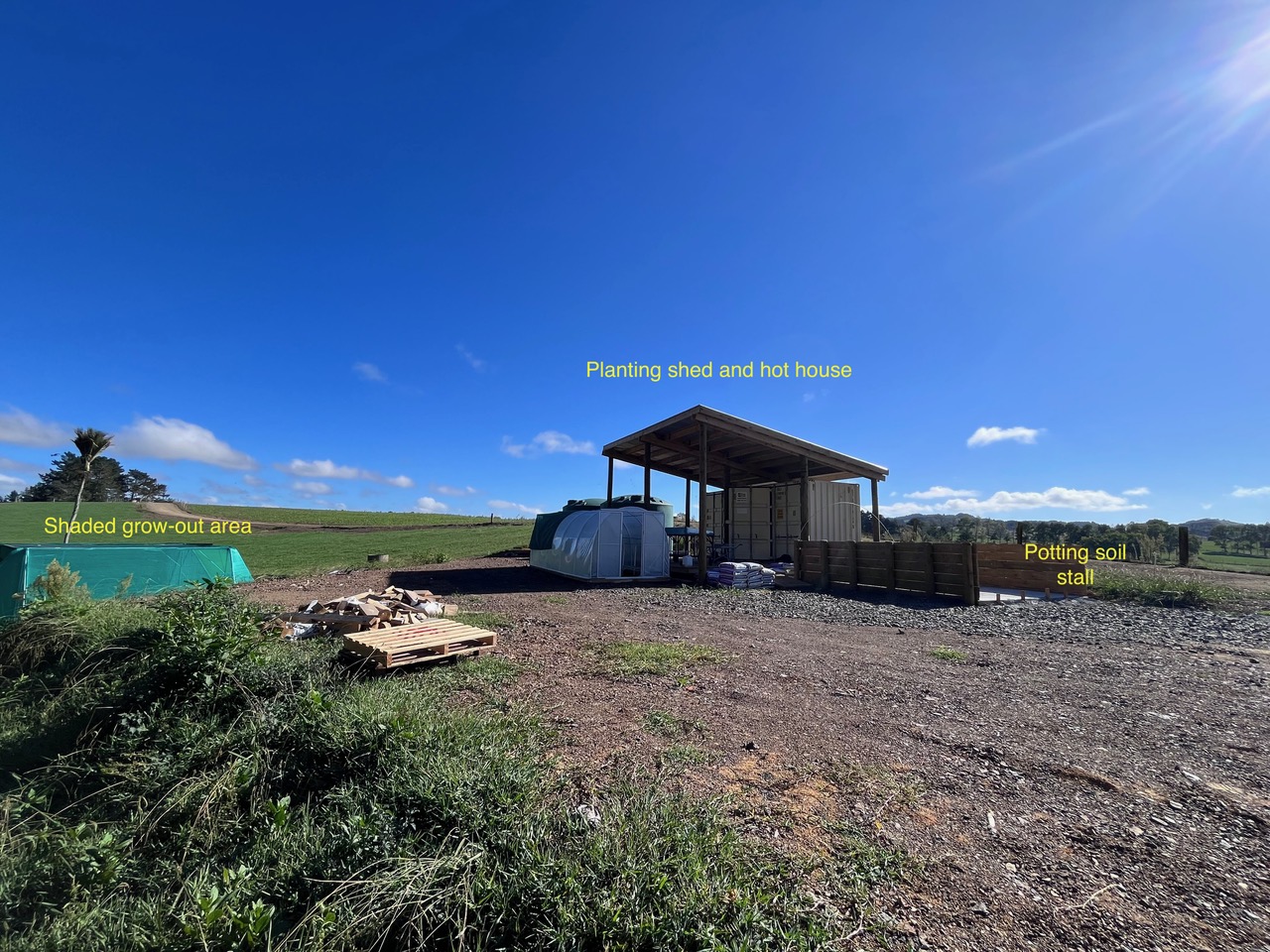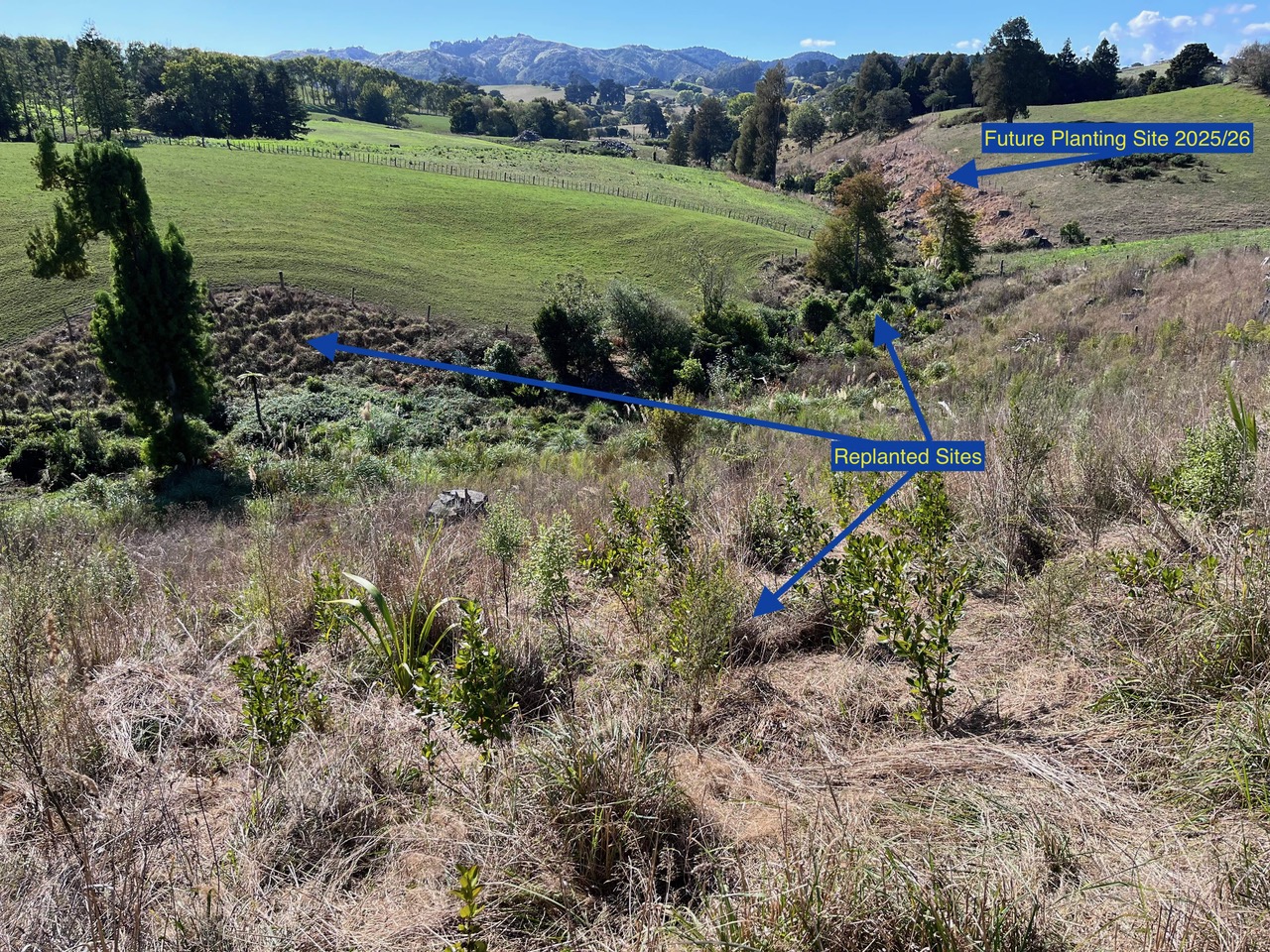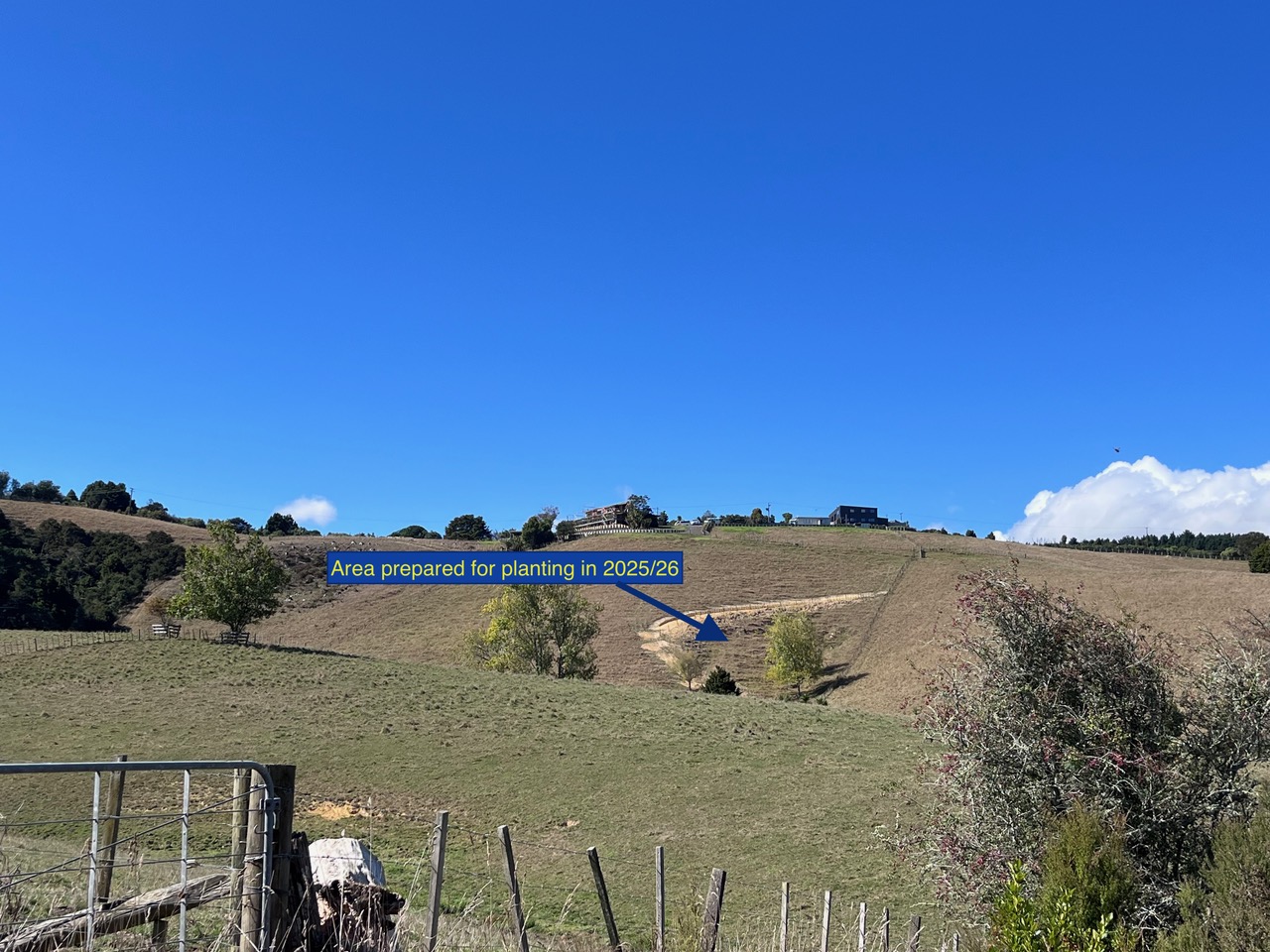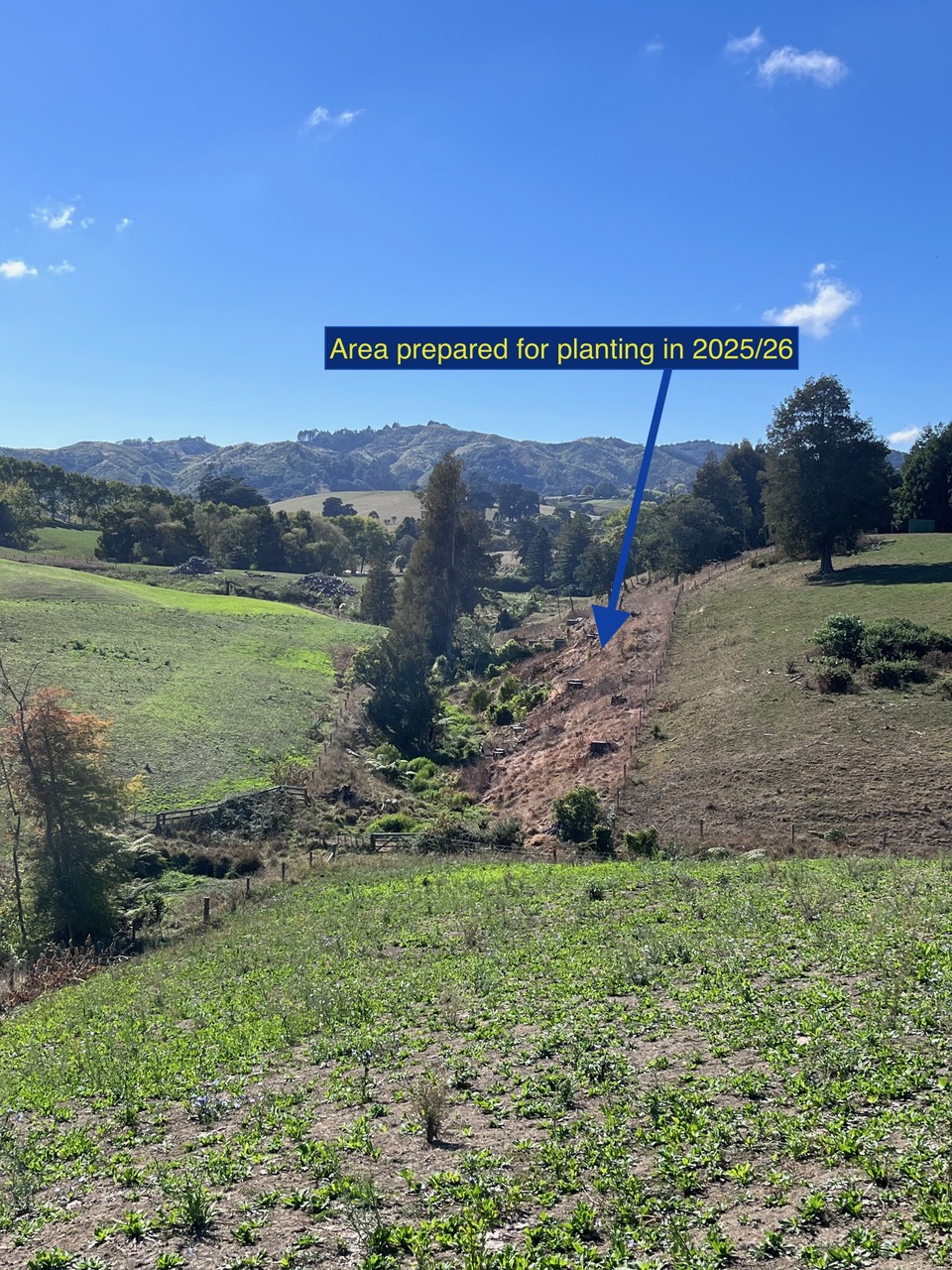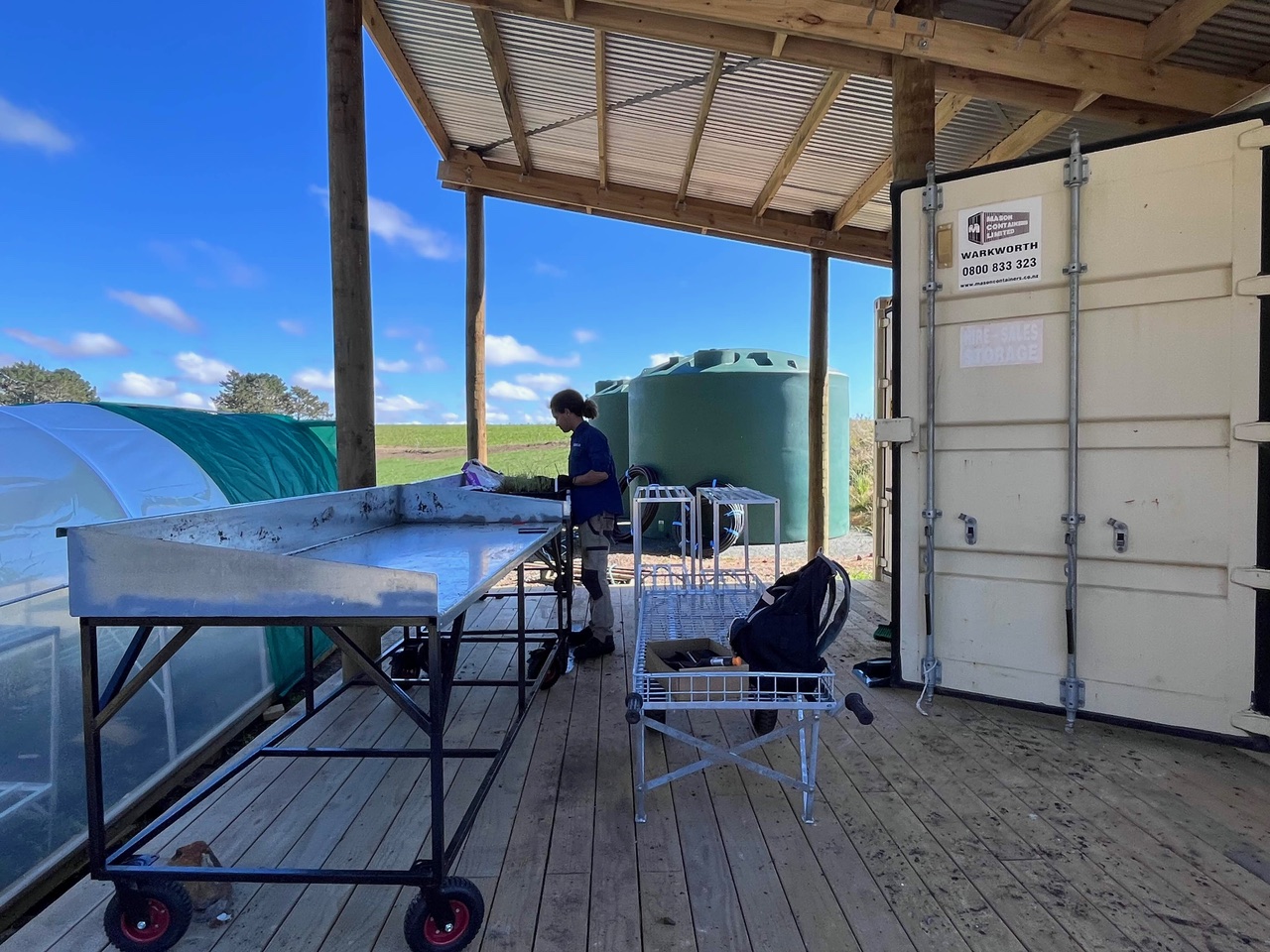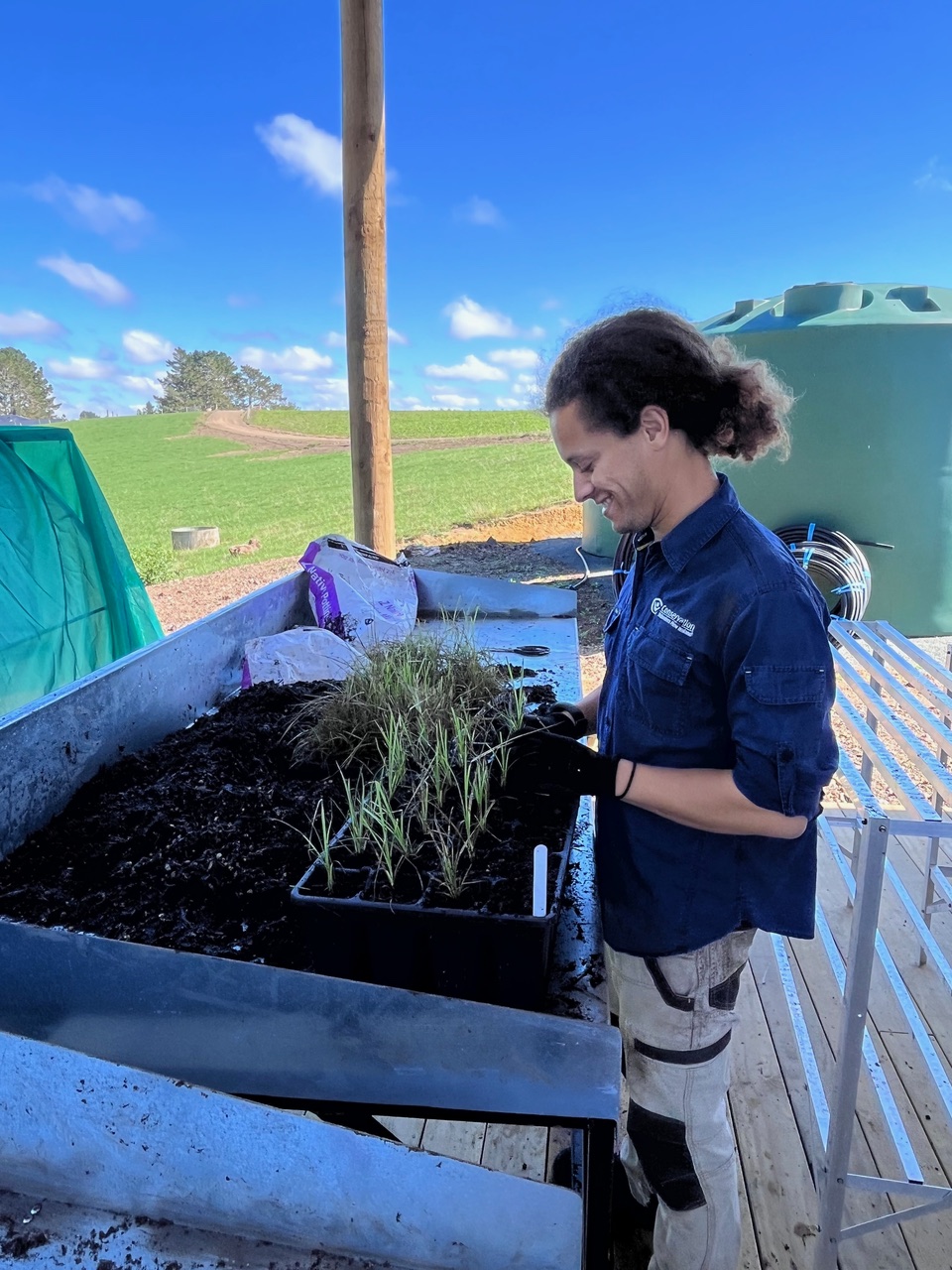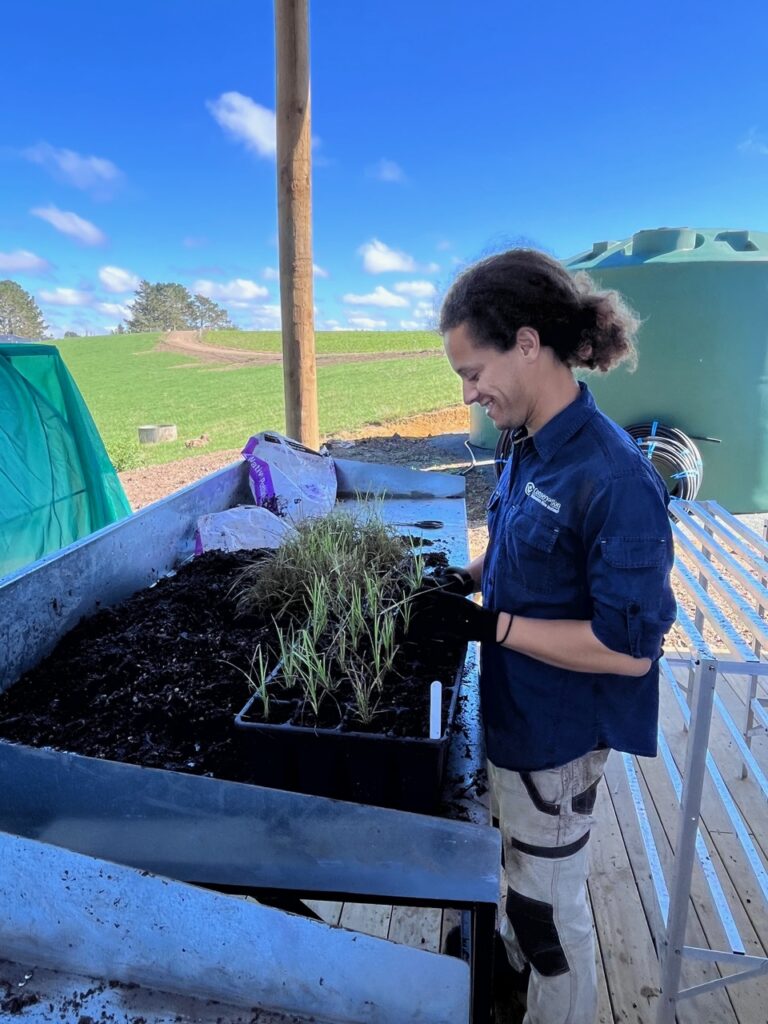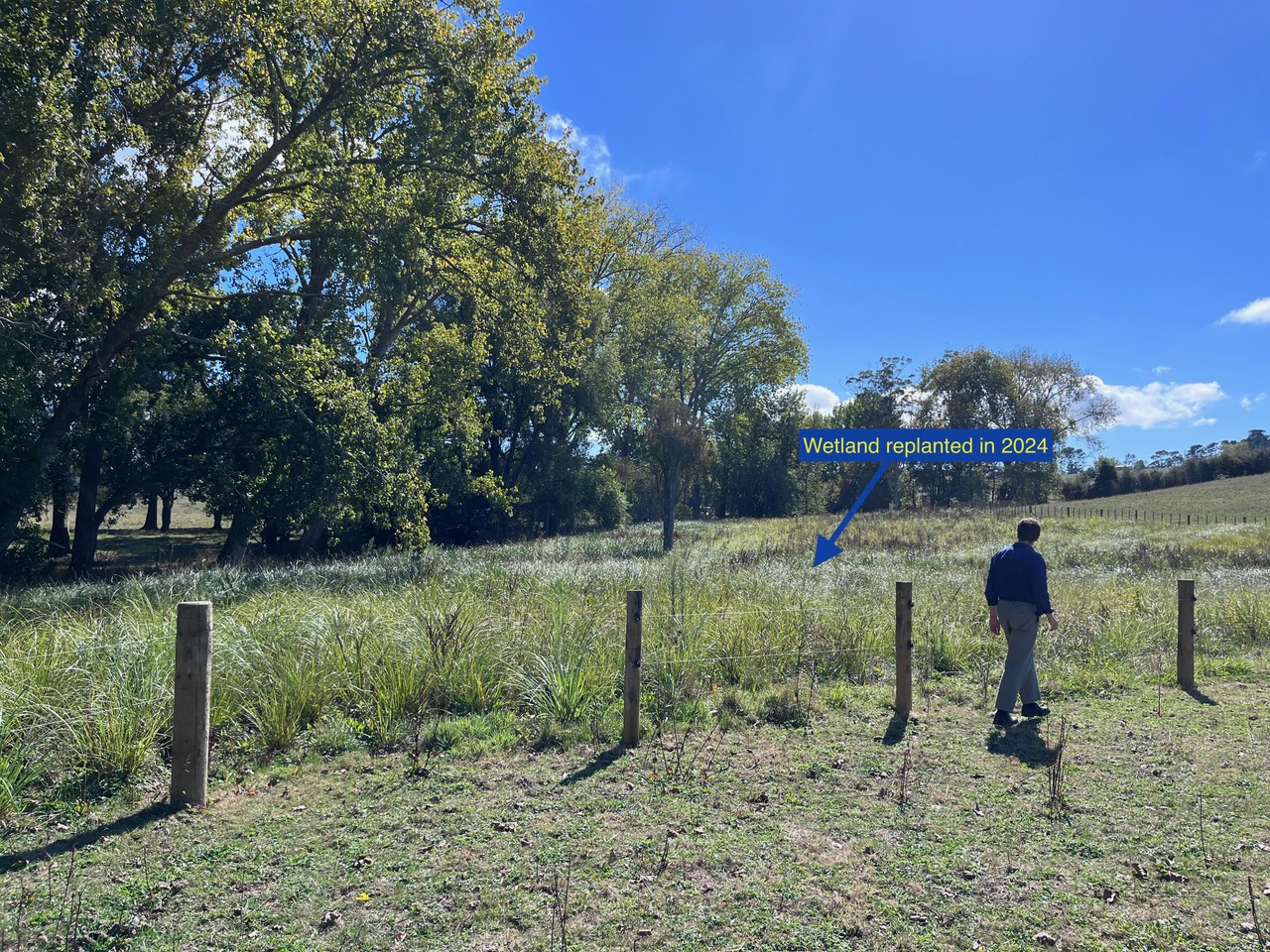This project is an ambitious endeavor that aims to restore terrestrial, stream, and harbor ecosystems. These ecosystems are home to many of New Zealand’s native species, some of them endangered. It will do this by restoring native trees and other plants along and near Papakura Stream, which drains into Manukau Harbor, south of Auckland. The land along the 39-mile stream was once covered with forest and wetland, but was cleared for pasture over the past century. Now, erosion, fertilizer runoff, and E. coli (from livestock) are damaging the health of the river and harbor.
The stream and its 10,130-acre catchment area are home to threatened species including eels and endemic fish. Once the native trees are growing again, they will improve aquatic habitat by filtering excess sediment and nutrients from runoff before it reaches the stream. Tree cover will also create a wildlife corridor and restore habitat for bird species including the kākā, an endangered parrot. It will help protect one of New Zealand’s only two native mammals, the long-tailed bat, or pekapeka, which is in danger of extinction.
Restoring the stream will also improve the health of Manukau Harbor, downstream. The harbor has highly productive sand and mudflats, seagrass beds, saltmarsh, reef and boulder habitats, and mangrove forests. It provides important habitat for native and migratory birds, including several endangered species. The harbor also provides seafood for people in the region.
Since 2021, Conservation Volunteers New Zealand has worked with landowners and volunteers to restore the stream area, including tributaries. They’ve fenced out livestock, cleared invasive plants, and planted native ones (which are thriving). The goal is to plant 40,000 native plants each year over two more decades, or an average of about 7.5 acres of dense planting each year. Landowners have signed memoranda of understanding that state the replanted land will be protected in perpetuity.
Seacology funding is helping Conservation Volunteers add solar power, compostable toilets, and equipment to their native plant nursery.



